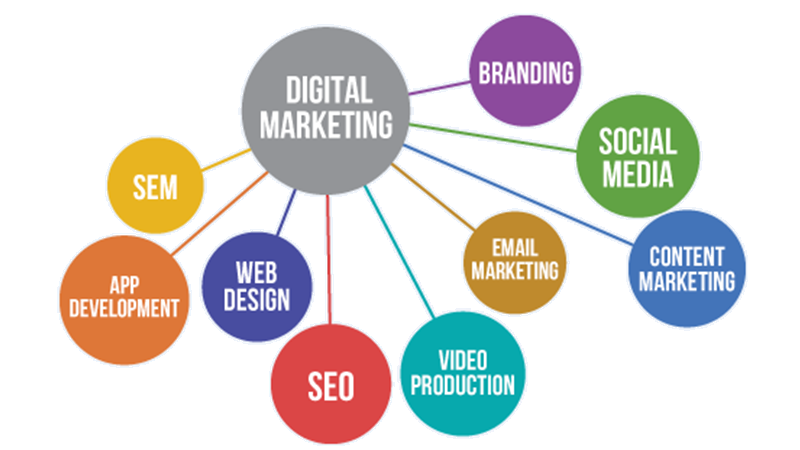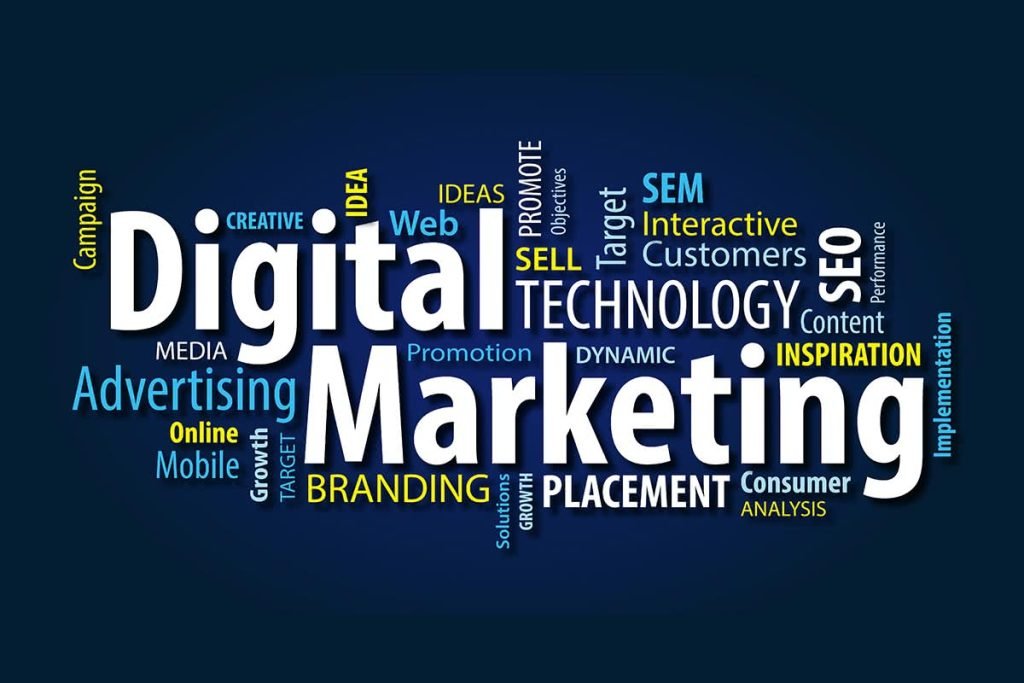The Power of Digital Marketing Technology in 2025
In today’s hyper-connected world, digital marketing technology is not just a trend — it’s the backbone of modern business strategies. From AI-driven personalization to advanced analytics, the tools available are transforming how brands reach and engage their audiences.

📱 What Is Digital Marketing Technology?
Digital marketing technology, often referred to as MarTech, includes software and tools that help marketers plan, execute, and analyze their marketing campaigns. These can include:
- Customer Relationship Management (CRM) platforms like HubSpot and Salesforce
- Email marketing tools such as Mailchimp and Klaviyo
- Social media management apps like Hootsuite and Buffer
- SEO & content optimization tools like SEMrush and Yoast
- AI-powered automation and analytics platforms

🤖 AI & Automation: A Game-Changer
Artificial Intelligence is redefining how marketers interact with customers. AI can:
- Predict consumer behavior
- Personalize content at scale
- Optimize ad spending in real-time
- Automate repetitive tasks like email segmentation
Chatbots, predictive analytics, and dynamic content creation are now common in cutting-edge campaigns.
📊 Data-Driven Decisions
With tools like Google Analytics 4, marketers no longer need to guess what works. Real-time dashboards offer insights into:
- Audience behavior
- Conversion rates
- Content performance
- Customer journeys
Using this data, businesses can make smarter decisions and fine-tune their strategies for maximum ROI.
🌐 The Rise of Omnichannel Marketing
Today’s consumer journey is spread across devices and platforms. Digital marketing technology enables omnichannel strategies, ensuring a seamless experience whether a customer interacts with a brand via:
- A mobile app
- A website
- Social media
- Email campaigns
🔮 What’s Next?
In the near future, expect even more integration of voice search, AR/VR, and hyper-personalization driven by machine learning. Privacy and ethical marketing will also play a bigger role, with platforms prioritizing transparency and user control.
Conclusion:
Digital marketing technology empowers businesses to be smarter, faster, and more responsive. Whether you’re a startup or an enterprise, investing in the right MarTech stack can be the difference between being heard — or getting lost in the noise.
Frequently Asked Questions (FAQ)

1. What is digital marketing technology?
Digital marketing technology, or MarTech, refers to software and tools that assist marketers in planning, executing, managing, and analyzing digital marketing campaigns. These tools help automate tasks, target audiences effectively, and measure results.
2. Why is digital marketing technology important?
It enables businesses to reach their audiences with precision, personalize content, analyze performance in real-time, and improve ROI. In a competitive digital space, using the right tools helps marketers stay ahead of trends and connect with customers effectively.
3. What are examples of digital marketing technologies?
Popular tools include:
- CRM platforms: Salesforce, HubSpot
- Email marketing: Mailchimp, ActiveCampaign
- SEO tools: Ahrefs, SEMrush
- Social media managers: Hootsuite, Buffer
- Analytics: Google Analytics 4, Hotjar
- AI & automation: ChatGPT, Zapier, Drift
4. What is a MarTech stack?
A MarTech stack is a collection of marketing technologies used by a business to manage customer interactions, campaigns, and data across multiple channels. It typically includes tools for CRM, content management, analytics, automation, and social media.
5. How does AI impact digital marketing?
AI enables:
- Predictive analytics
- Content personalization
- Chatbots for customer service
- Automated ad bidding and targeting
- Improved email segmentation and timing
6. Is digital marketing tech expensive?
Costs vary. Some platforms offer free versions or tiered pricing. Small businesses can start with basic tools (e.g., Mailchimp, Google Analytics) and scale up as needed.
7. How do I choose the right digital marketing tools?
Consider:
- Your business goals
- Budget and team size
- Integration with existing systems
- Ease of use and support
- Scalability and features


